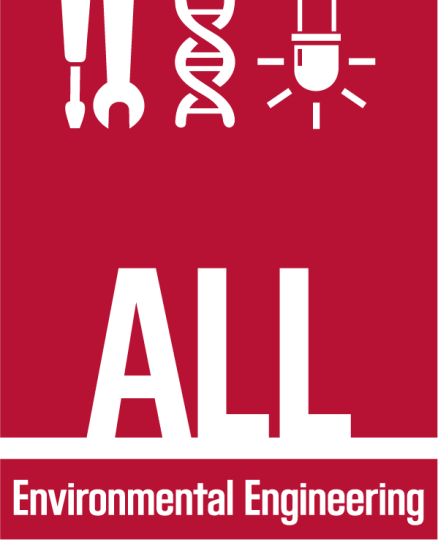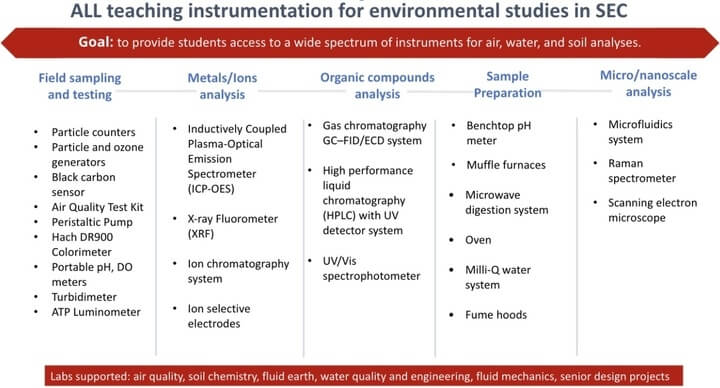Environmental Engineering
The Environmental Engineering Lab is committed to providing a high-quality and accessible engineering education through its state-of-the-art teaching space and instrumentation facility. It supports the development and implementation of hands-on laboratory activities within SEAS for students to investigate chemical phenomena, properties, and reactions in different environmental systems.
The lab is involved in the curriculum of environmental science and engineering (ESE) courses, which explore a wide range of topics, including air quality, soil and water chemistry, water treatment and engineering, geophysical fluid dynamics, instrumentation for environmental sciences, environmental data analysis, and thermodynamics, among others. It also hosts ESE students conducting their individual capstone projects.
To support these courses, the lab houses several analytical instruments for air, water, and soil chemistry experiments for both lab and field applications (see some of our instruments below). The lab has instrumentation for sample preparation, field sampling and testing (e.g., air and water quality sensors), metals/ions analysis (inductively coupled plasma-optical emission spectrometer, x-ray fluorometer, ion chromatography system), organic compounds analysis (liquid and gas chromatography systems, UV/Vis spectrophotometer), and micro/nanoscale analysis (scanning electron microscope, microfluidics system). Overall, the lab is designed to equip SEAS students with invaluable laboratory training and skills to better prepare them for their thesis projects, graduate studies, and future professional careers.







